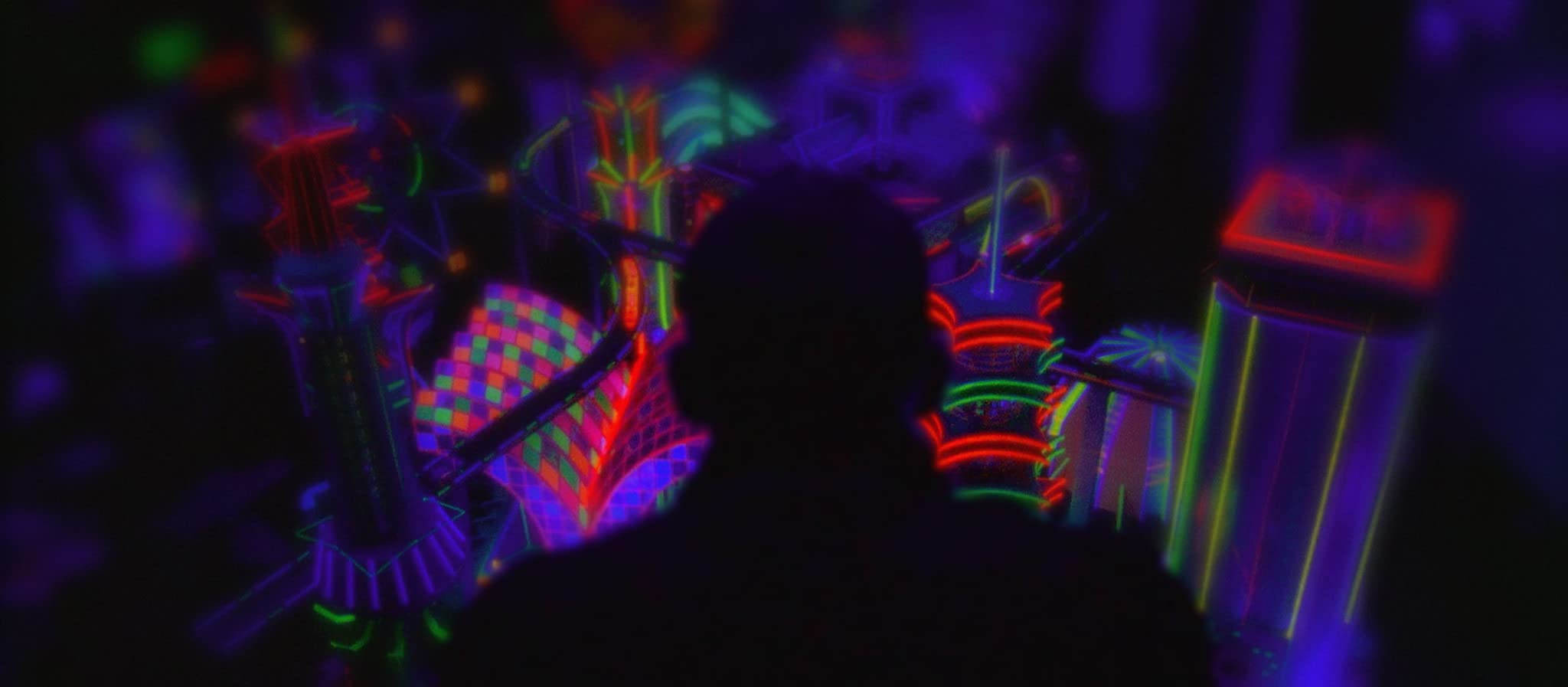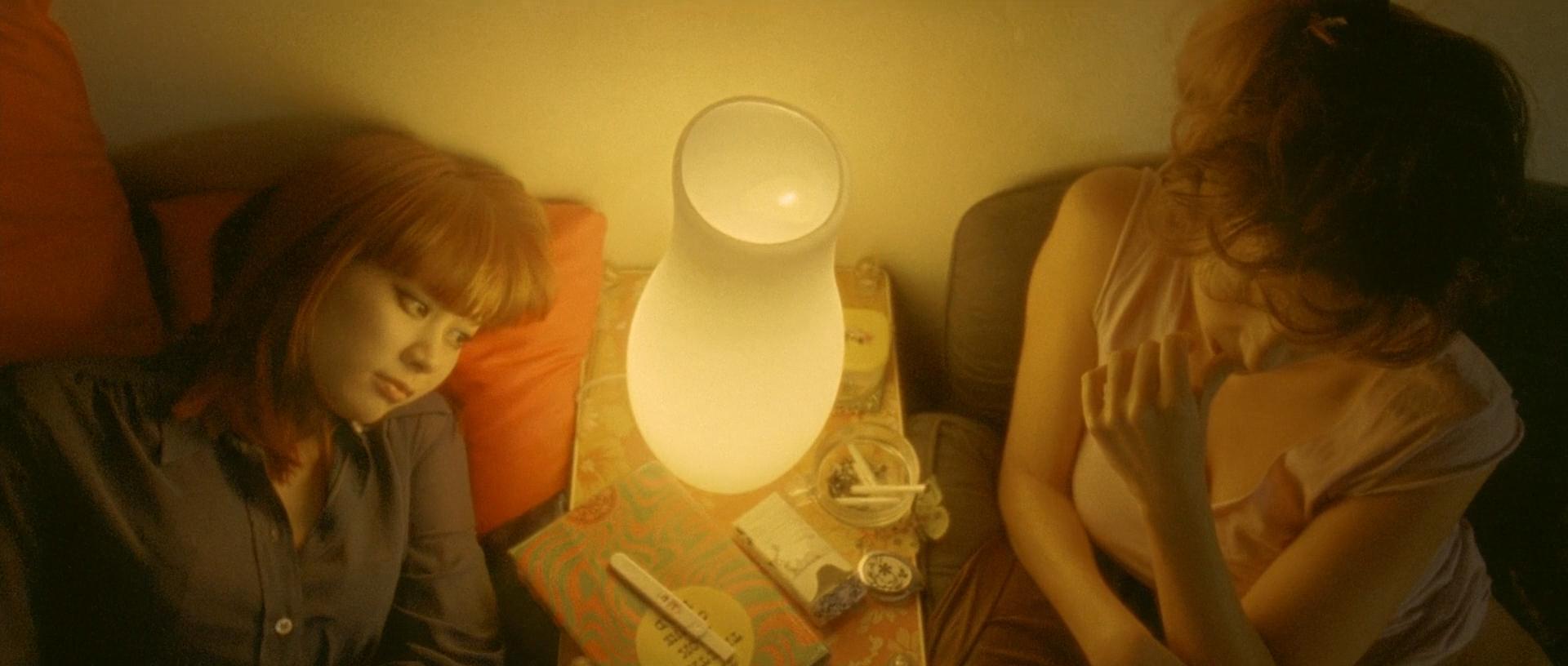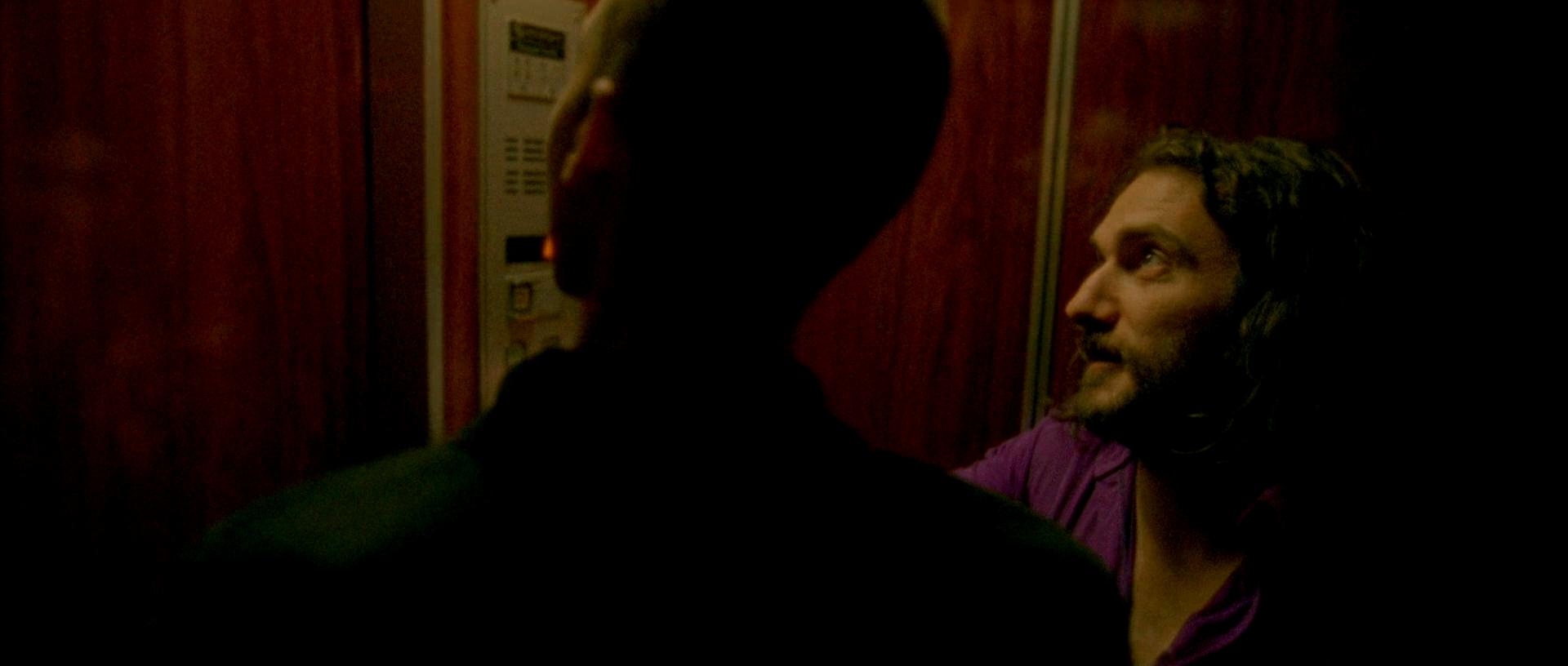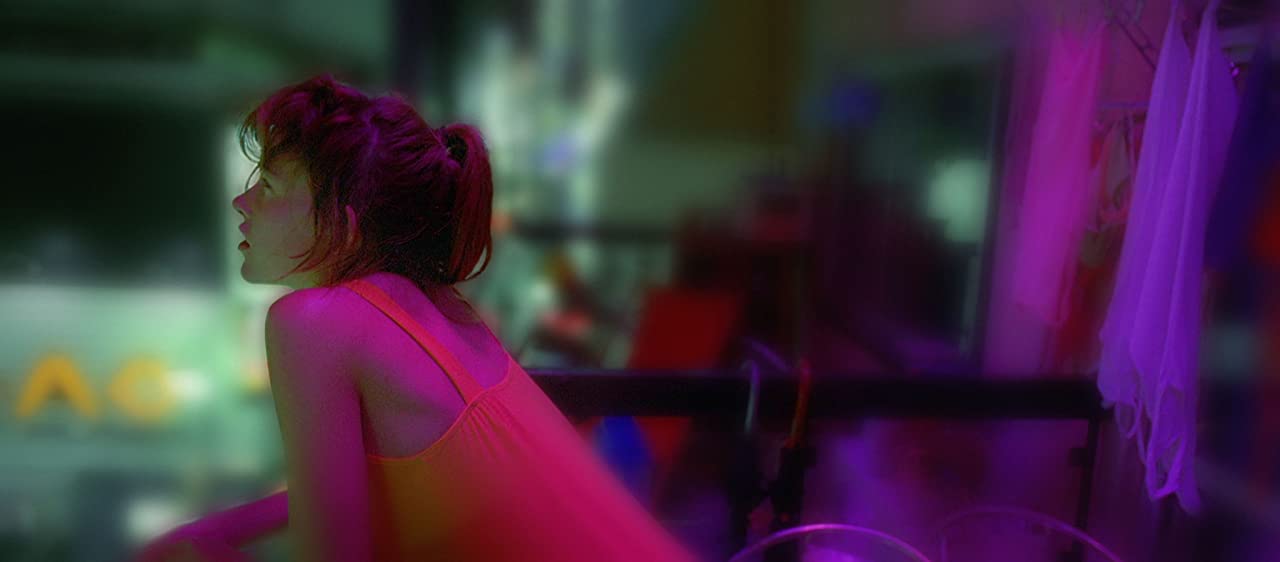Enter the Void: A Hedonistic Nightmare With Spiritual Hope
Gaspar Noé's psychedelic melodrama belongs with the best movies of the century.

Enter the Void (2009) has been my favourite Gaspar Noé movie since its release. It is exceptional in his filmography to that point, dialling down exploitation and shock value enough to let its story breathe, but riding the same nail-biting, high energy wave of disturbing violence and sexuality in societal fringes that Noé made his cinematic signature.
I've yet to see Lux Æterna (2019), but while Climax (2018) and Vortex (2021) (a wholly different kind of entry in his filmography) are excellent in different ways, neither feels like a “giant” story or movie — the kind that will continue to stand out over the decades on its own merits, and not become a curiosity of its time.
Older Noé entries like Irreversible (2020) and I Stand Alone (1998) are powerfully disturbing and unforgettable, but their genuine shock value accounts for a lot of their visceral impact. Both are gut-wrenching, but strong viewer reactions to their most graphic scenes does not necessarily equate to artistic power.
Enter The Void is on a different wavelength. I would include it in my top ten movies of the century. I have watched it several times and took something new from each viewing, with my previous viewing a couple of years back.
I spotted Arrow Video’s Limited Edition Blu-ray box set discounted online, and decided this was an Essential Cultural Goods purchase. Time for a rewatch.
Spacing out viewings of great movies pays off. If you leave significant time between — at least several months, preferably a year or more — it lets you forget just enough detail that the story can enter your mind as new again in ways.
Presentation helps enormously. If you can see old favourites in the cinema, jump at the chance — you're not going to see them the same way elsewhere. I still kick myself for not turning up earlier in advance to a local screening of The Shining a few years ago.
… I did see three other of Kubrick's best in the same venue, it's worth noting, during that same Kubrick season — so all was not lost.
Still… The Shining.
Point being, always take advantage of great movies of the past showing up on the big screen. It's the best way to see them through new eyes, as if for the first time, and to see new things in them.
For home viewings, mustering the best presentation you can makes a difference. Watching with a bit of ceremony and a lot of focus helps, too.
In this case I was projecting in 1080p, with the very solid bit rates of Blu-ray combined with a superb quality transfer. I watched the special features and flipped through the neon artwork included in the box. The director's cut. 18 minutes longer than the theatrical version. Promising.
Excitement generated? Check.
Dim the lights, roll the feature!
Or, spin the disc and fire the laser!
Or, if you must, algorithmically traverse the bitstream and hope your download throughput maintains a reasonable resolution and bitrate over the next two-plus hours!
You get the idea. Watch as you can, with the best presentation available.
I was thrilled to find Enter The Void had new levels to unlock. After this viewing I didn't just consider it one of my favourite movies of the 21st century, but one of the best ones.
Next to the visual and sonic blitz of Tokyo, its semi-extraterrestrial aesthetic, the urban horrors of the giant metropolis, and lethal psychedelic allure of appearances, is narrative substance. Character flaws and bad decisions lead to extreme peril in unexpected ways. The anxiety-fuelled pace and plot foreshadows Uncut Gems. The bad in the good and the good in the bad mix, becoming hard to track in moments, weaved into a plot that stops, starts, and takes the viewer on a carousel that is pure sensory bombardment on the surface, but amounts to a substantial melodrama. Physical and spiritual dislocation, the chaos of modern life, and the potential elusiveness of love boldly set the tone.
Its ingredients come together to create a unique cinematic product and viewing experience. It's a modern classic.
The biggest thing I took away from the viewing is that this is the story of Linda and Alex, which happens to be shot from the first-person perspective of Oscar. You might think of Oscar as a kind of zombie cameraman who the viewer confuses at first for the protagonist, and who confuses himself for the protagonist.

To see this angle it helps not to pay too much attention to what characters say about other characters, or how they perceive themselves. There’s some complex social dynamics and misdirection in the script, and many unreliable narrators. Observing their actions, detached from the social commentary about them in the script, gives the clearer view and a better reading.
As it happens, this way of viewing the movie shares things in common with the practice of mindfulness meditation, which ties in with the story's references to The Tibetan Book of the Dead and the detached first-person perspective of the camerawork.
Linda and Alex are both flawed characters, fucked up or damaged in a bunch of ways, but they are basically good souls. Alex is indulgent, hedonistic, and self-centred, but within control. He channels his energy into art and possesses some sensible, moral, and empathetic qualities. He offers good advice and makes some genuine attempts to help. Linda is emotionally compulsive, but driven by a need for love — if she is corrupted in ways, that seems genuinely due to the effects of past trauma. She does not just blindly seek love, but wants to care for and protect those she receives it from.
The hand of fate seems to draw the two together in a complex fashion. Ugly in ways, but they naturally gravitate towards one another in danger.


As a counterweight to Alex, there is a subtle but real cold-heartedness in Oscar, written in a fairly ambiguous way, and once you are tuned in to it, it feels more and more callous — likely more than can be ascribed to the effects of the trauma we're shown. From that impression it almost naturally follows that this isn't his story. The beating heart of the movie is to be found in other places.
The mood is superb. There is a sense of being spiritually adrift throughout, from the literal and obvious, but also for the viewer to find in almost every character we encounter in less literal and more varied ways. This quality is unifying and pervasive, and it contributes a lot to the viewing experience to make it gel and work thematically.
The opening credits, the creation of which is covered in detail in one of Arrow Video’s excellent Blu-ray extra features, are ridiculously effective as a psychic kickstart, both visually and sonically. Not long after the movie was released Quentin Tarantino described them as, to paraphrase, “top 10 credits of all-time” in his end-of-year list; I concur.
If Enter The Void could be accused of cultural exploitation in the same vein as, say, Lost In Translation, it is very self-aware of it. A deliberately included part of the story. Why are these people in Tokyo? None of them belong there. This becomes key to understanding who (all of) these characters are. Their common dislocation suggests they are all on a similar journey, and have been drawn there for reasons in common.
I like to come away from viewings of favourite movies with a simple thought that illuminates something new to me. And I love seeing new things in old movies, discovered like secret levels the filmmaker stitched into the narrative fabric.
— As an aside, there is also a kind of “hidden key” line in the script that links something Oscar says towards the start to something said by Linda towards the end. It involves the image of the Love Hotel from the poster. Watch out for it. It’s fun to notice and think about. —
My takeaway from this viewing was simple. It can be summed up in fourteen words: this is the story of Alex and Linda, seen from the perspective of Oscar.
If it sounds like a minor semantic distinction, for me it altered the energy of the movie and the meaning of the story, shifting it away from an intriguing, hedonistic/nihilistic, psychedelic tragedy, towards a dark and fatalistic love story, with room for a sobering, cautious kind of hope.
James Lanternman writes movie reviews, essays, and moonlit thoughts. You can reach him at [email protected].
Previously… Sydney, The Good Psychopath?
